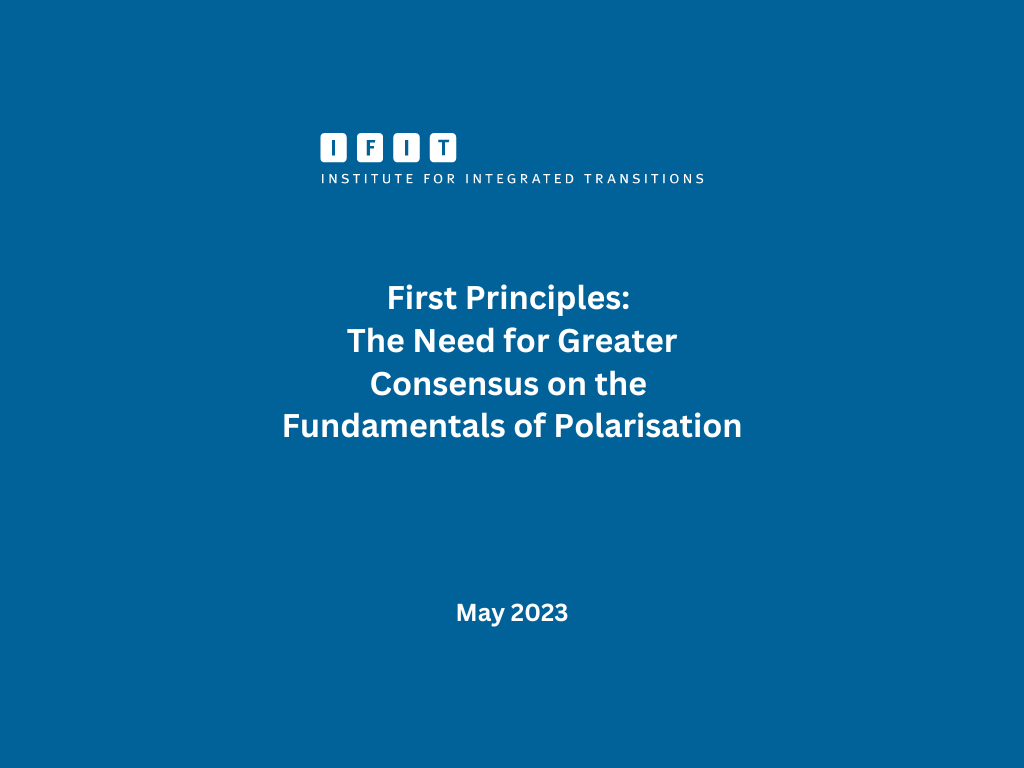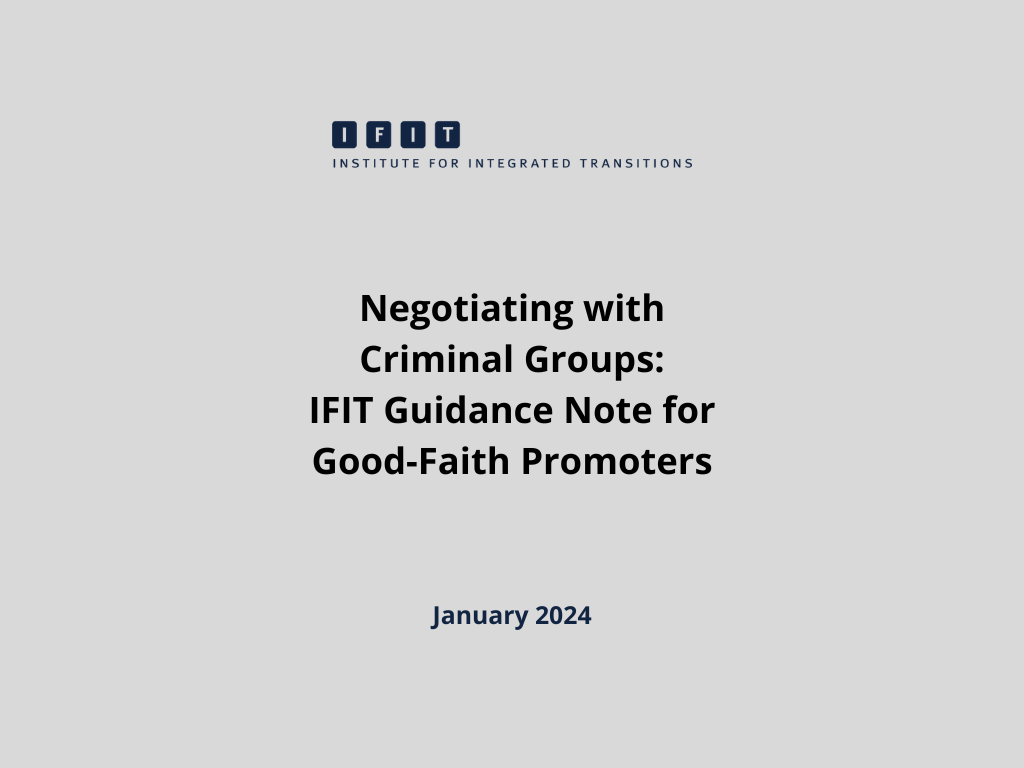Expert Team: Global Initiatives
Gertrude Lübbe-Wolff is a professor of public law at Bielefeld University (Universität Bielefeld) and former Justice of the German Constitutional Court from 2002 to 2014.
She studied law at Bielefeld University and University of Freiburg (Albert-Ludwigs-Universität Freiburg) and holds a master’s degree from Harvard Law School. In 1980, she obtained her PhD in Freidburg. After obtaining her PhD, she habilitated in Bielefeld in the fields of public law, philosophy of law and modern constitutional history. For several years (1988 – 1992) she headed the Environmental Protection Office of the City of Bielefeld, Germany. Since 1992 she has been at Bielefeld University where she is a professor of Public Law.
For her scientific achievements, Gertrude Lübbe-Wolff has been awarded the Grand Cross of Merit by the Federal President of Germany, an honorary doctorate by the European University Institute, the Hegel Prize by the City of Stuttgart and the Leibniz Prize by the German Research Foundation.
You may also be interested in
Justice Dikgang Ernest Moseneke was born in 1947 in Pretoria, where he attended primary and secondary school. At the young age of 15, he was arrested, detained and convicted of participating in anti-apartheid activities.
He was sentenced to 10 years’ imprisonment, all of which he served on Robben Island. Moseneke studied for his matric as well as two degrees while in jail. While he was jailed on Robben Island, he obtained a BA in English and political science, as well as a B Iuris degree. He later completed an LLB degree. All three degrees were conferred by the University of South Africa.
Moseneke started his professional career as an attorney’s clerk at Klagbruns Inc in Pretoria in 1976. In 1978 he was admitted and practised for five years as an attorney and partner at the law firm Maluleke, Seriti and Moseneke. In 1983 he was called to the Bar and practised as an advocate in Johannesburg and Pretoria. Ten years later, in 1993, he was elevated to the status of senior counsel. He served on the technical committee that drafted the Interim Constitution of the Republic of South Africa of 1993. In 1994 he was appointed Deputy Chairperson of the Independent Electoral Commission, which conducted the first democratic elections in South Africa. In September 1994, while practising law, he accepted an acting appointment to the Transvaal Provincial Division of the Supreme Court.
Before his appointment as Justice of the Constitutional Court in November 2001, he was appointed a Judge of the High Court in Pretoria. On 29 November 2002, he was appointed as a judge in the Constitutional Court and in June 2005, he was appointed Deputy Chief Justice of the Republic of South Africa – a position he held until his retirement in May 2016.
Moseneke also has 14 honorary doctorates in law and multiple law-related global awards.
You may also be interested in
Cristina Rodríguez is the Leighton Homer Surbeck Professor of Law at Yale Law School. Her fields of research include constitutional law and theory, immigration law and policy, administrative law and process, and citizenship theory. In recent years, her work has focused on constitutional structures and institutional design. She has used immigration law and related areas as vehicles through which to explore how the allocation of power (through federalism, the separation of powers, and the structure of the bureaucracy) shapes the management and resolution of legal and political conflict. Her work also has examined the effects of immigration on society and culture, as well as the legal and political strategies societies adopt to absorb immigrant populations. Her new book, The President and Immigration Law (Oxford University Press, September 2020), coauthored with Adam Cox, explores the long history of presidential control over immigration policy and its implications for the future of immigration law and the presidency itself.
Rodríguez joined Yale Law School in 2013 after serving for two years as Deputy Assistant Attorney General in the Office of Legal Counsel at the U.S. Department of Justice. She was on the faculty at the New York University School of Law from 2004–2012 and has been Visiting Professor of Law at Stanford, Harvard, and Columbia Law Schools. She is a non-resident fellow at the Migration Policy Institute in Washington, D.C., a member of the American Law Institute, and a past member of the Council on Foreign Relations. In 2020, she was elected to the American Academy of Arts and Sciences. She earned her B.A. and J.D. degrees from Yale and attended Oxford University as a Rhodes Scholar, where she received a Master of Letters in Modern History. Following law school, Rodríguez clerked for Judge David S. Tatel of the U.S. Court of Appeals for the D.C. Circuit and Justice Sandra Day O’Connor of the U.S. Supreme Court.
You may also be interested in
Kate O’Regan is the inaugural Director of the Bonavero Institute of Human Rights and a former judge of the South African Constitutional Court (1994 – 2009).
In the mid-1980s she practised as a lawyer in Johannesburg in a variety of fields, but especially labour law and land law, representing many of the emerging trade unions and their members, as well as communities threatened with eviction under apartheid land laws. In 1990, she joined the Faculty of Law at University of Cape Town where she taught a range of courses including race, gender and the law, labour law, civil procedure and evidence.
Since her fifteen-year term as a judge at the South African Constitutional Court ended in 2009, she has, amongst other things, served as an ad hoc judge of the Supreme Court of Namibia (from 2010 – 2016), Chairperson of the Khayelitsha Commission of Inquiry into allegations of police inefficiency and a breakdown in trust between the police and the community of Khayelitsha (2012 – 2014), and as a member of the boards or advisory bodies of many NGOs working in the fields of democracy, rule of law, human rights and equality.
You may also be interested in
Asanga Welikala is Head of Public Law at the School of Law, University of Edinburgh; and the Director of the Edinburgh Centre for Constitutional Law. He is also a Research Associate of the Institute of Commonwealth Studies, University of London, and Research Fellow of the Centre for Policy Alternatives (CPA), Sri Lanka.
Asanga’s research and teaching interests lie in British public law, comparative and Commonwealth constitutional law, applied constitutional theory, and the history of constitutional ideas. He is a leading expert on Sri Lankan constitutional law, and has been engaged in constitutional and legal advisory work in Sri Lanka, Iraq, the Maldives, Nepal, Thailand, Somalia, Egypt, Libya, Myanmar, and The Gambia.
You may also be interested in
Hilary Pennington is Ford Foundation’s executive vice president of programs. She oversees all of our programs globally, working closely across programs and offices to ensure strategic, meaningful, and well-aligned global grant making. She also oversees the foundation’s BUILD program, and the Office of Strategy and Learning. Before assuming her current role, she served as the foundation’s vice president for Education, Creativity, and Free Expression.
A national expert on postsecondary education and intergenerational change, Hilary joined the foundation in 2013. Earlier, she was an independent consultant whose clients included the Next American University project of the New America Foundation and Arizona State University. She also led the Generations Initiative, a project funded by national foundations to develop effective responses to the dramatic demographic shifts occurring in the United States.
Between 2006 and 2012, Hilary served as director of education, postsecondary success, and special initiatives at the Bill and Melinda Gates Foundation, where she guided grant programs across the country and worldwide. Before joining Gates, she was a senior fellow at the Center for American Progress and president and CEO of Jobs for the Future, a research and policy development organization she co-founded. In 22 years with JFF, Hilary helped the organization become one of the most influential in the country on issues of education, youth transitions, workforce development, and future work requirements. She also served on President Bill Clinton’s transition team and as co-chair of his administration’s presidential advisory committee on technology.
Hilary serves on the boards of Bard College, the Center for Effective Philanthropy, and Giving Tuesday, and she is a member of the Trinity Church Vestry. She is a graduate of the Yale School of Management and Yale College, and she holds a graduate degree in social anthropology from Oxford University and a master’s degree in theological studies from the Episcopal Divinity School. In 2000, she was a fellow at Harvard’s Kennedy School of Government.
john a. powell is an internationally recognized expert in the areas of civil rights, civil liberties, structural racism, housing, poverty, and democracy. He is the Director of the Othering & Belonging Institute at the University of California, Berkeley, a research institute that brings together scholars, community advocates, communicators, and policymakers to identify and eliminate the barriers to an inclusive, just, and sustainable society and to create transformative change toward a more equitable world.
john holds the Robert D. Haas Chancellor’s Chair in Equity and Inclusion and is a Professor of Law, African American Studies, and Ethnic Studies at UC Berkeley. Previously, he was the Executive Director of the Kirwan Institute for the Study of Race and Ethnicity at The Ohio State University where he also held the Gregory H. Williams Chair in Civil Rights & Civil Liberties at the Moritz College of Law.
He regularly appears in the major media offering expert insights on a host of issues. Recent appearances include NPR and WYNC’s On The Media in an episode about free speech and the constitution, Last Week Tonight with John Oliver in an episode about housing segregation, CBS Evening News where john weighed in on police reform and the Chauvin trial.
john has written extensively on a number of issues including structural racism, racial justice, concentrated poverty, opportunity-based housing, voting rights, affirmative action in the United States, South Africa and Brazil, racial and ethnic identity, spirituality and social justice, and the needs of citizens in a democratic society. He is the author of several books, including his most recent work, Racing to Justice: Transforming our Concepts of Self and Other to Build an Inclusive Society.
The founder and director of the Institute on Race and Poverty at the University of Minnesota, john has also served as Director of Legal Services in Miami, Florida and was the National Legal Director of the American Civil Liberties Union, where he was instrumental in developing educational adequacy theory.
john led the development of an “opportunity-based” model that connects affordable housing to education, health, health care, and employment and is well-known for his work developing the frameworks of “targeted universalism” and “othering and belonging” to effect equity-based interventions.
john has lived and worked in Africa, where he was a consultant to the governments of Mozambique and South Africa, and has also worked in India and Brazil. He is one of the co-founders of the Poverty & Race Research Action Council and serves on the board of several national and international organizations. john has taught at numerous law schools including Harvard and Columbia University.
You may also be interested in
Rima Maktabi is a communications professional with over 20 years’ experience in television. She is currently UK bureau chief for Al Arabiya, covering international news and interviewing top leaders and decision-makers. War torn Syria, Iraq and ISIS have been at the heart of Maktabi’s news coverage from the frontlines of Aleppo, Idlib, Daraa and Mosul. Prior, Maktabi worked at CNN as an anchor and reporter covering major news stories across the Middle East, including the Arab Spring revolutions in Tunisia, Egypt and Bahrain. She was also the host of CNN’s renowned show “Inside the Middle East”. Maktabi started her career in media in her home country Lebanon as a student, beginning with Lebanese Future TV where she spent 10 years and established her career in media and journalism. Maktabi has received numerous accolades for her work, such as the Mohammed Bin Rashed Al Maktoum award for her July war coverage in 2006. She has an MA in International Affairs and BA in Communication Arts from the Lebanese American University in Beirut (LAU).
You may also be interested in
Dabesaki Mac-Ikemenjima is a program officer at Ford Foundation’s office for Western Africa in Lagos. He currently works at the intersection between gender and natural resources, and manages grantmaking that integrates women and girls, disability and youth lenses across these two domains. This work actively promotes the inclusion of the voices of diverse groups and perspectives.
Dabesaki has had extensive experience working on youth issues from research, policy and program perspective across Africa and beyond. Prior to joining Ford, he was a policy consultant to various international non-governmental, governmental, and multilateral institutions. He was an embedded consultant at the African Union Commission for an extended period and supported the development of regional frameworks and strategies, as well as providing technical assistance to its member countries. He was also the executive director of Development Partnership International, a youth-focused organization that worked to promote youth leadership in addressing health and education challenges in Nigeria and Zambia.
Dabesaki holds a PhD in international development and MA in development studies from the University of East Anglia, and a Bachelor’s degree in Educational Psychology from the Rivers State College of Education. He was previously an external research associate at the University of East Anglia and is a visiting researcher to the University of Witwatersrand.
You may also be interested in
Usman Hamid is the Chairperson of the Public Virtue Institute, as well as the Director of Amnesty International Indonesia. He is also a lecturer at Indonesia Jentera School of Law and a human rights lawyer and expert council at the Indonesian Bar Association (PERADI-RBA).
Usman was coordinator of KontraS, the Commission for Missing Persons and Victims of Violence, an organisation that advocates for victims of State abuse in Indonesia. In 2004 he was appointed a member of the Presidential Fact-Finding Team that investigated the 2004 murder of prominent Indonesian human rights defender Munir Said Thalib.
Usman went on to a fellowship at Nottingham University in 2009. He served as an expert adviser to the International Center for Transitional Justice, Jakarta office, from 2010 until 2012. In 2011 Usman was appointed to the Presidential Working Unit for the Supervision and Management of Development, where he reviewed the policy on Indonesia’s Human Rights Nation Plan of Action of 2011–2014. In 2012 he co-founded Public Virtue Institute and the Indonesian Branch of Change.org, the world’s largest online petition platform.
He has been a visiting scholar at Columbia University (2003) and held a fellowship at Nottingham University (2009).
You may also be interested in









